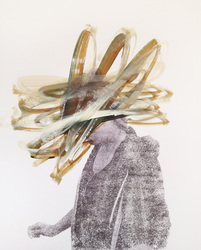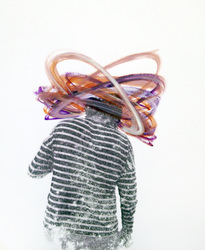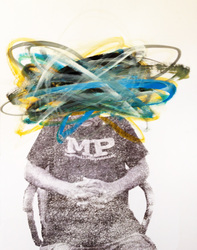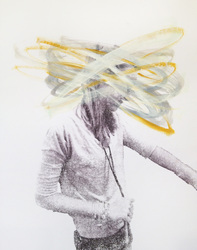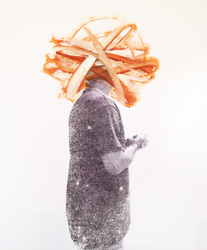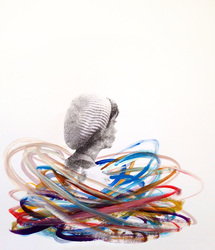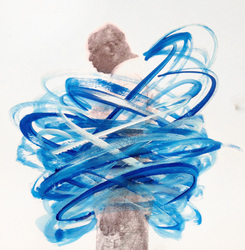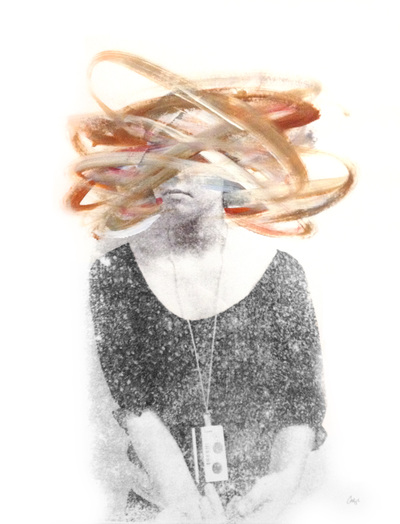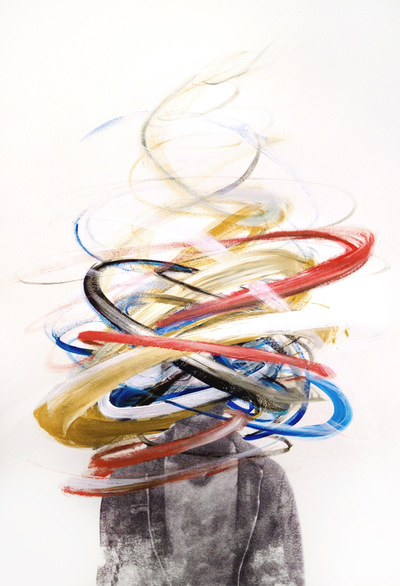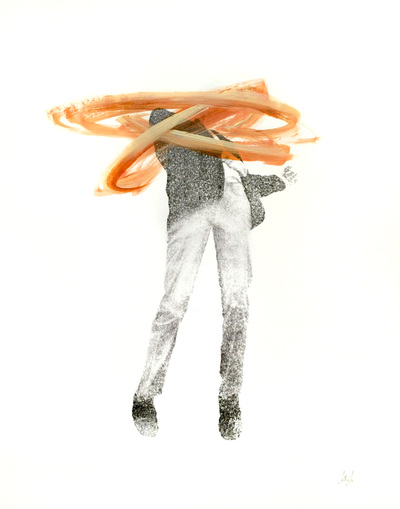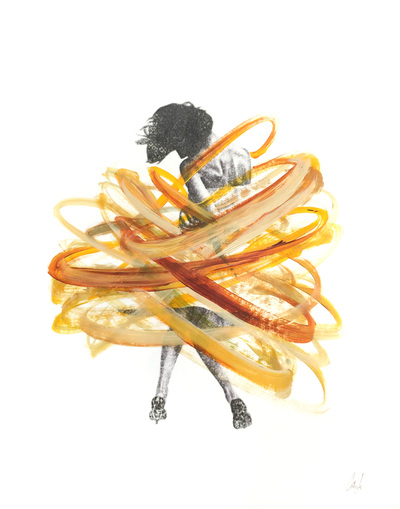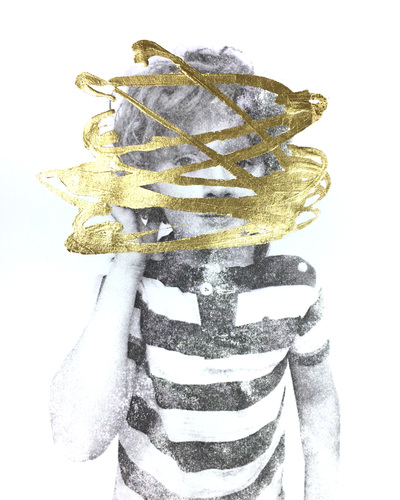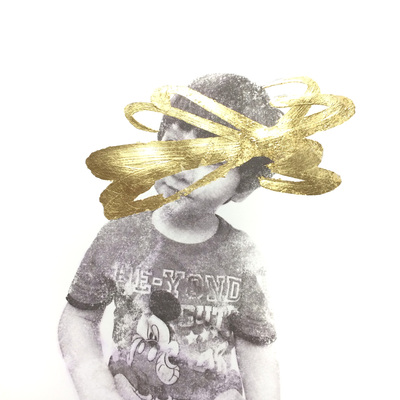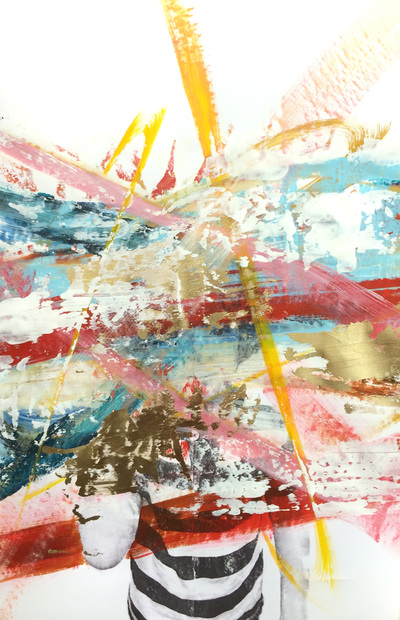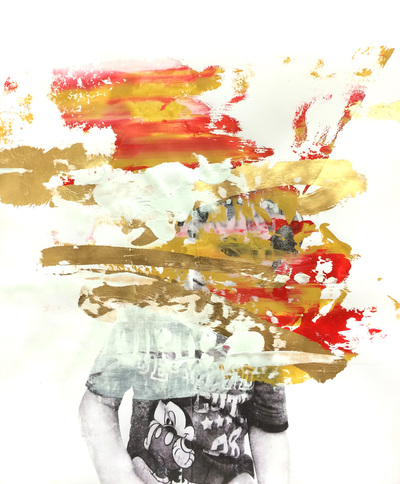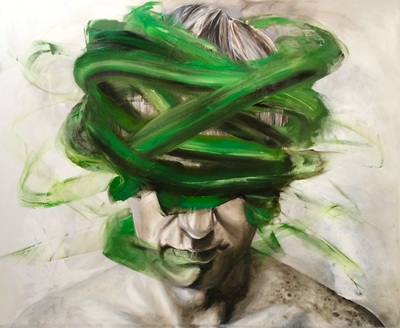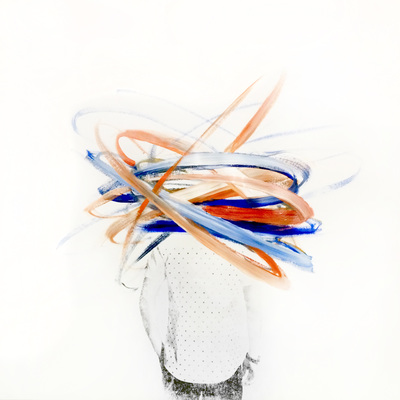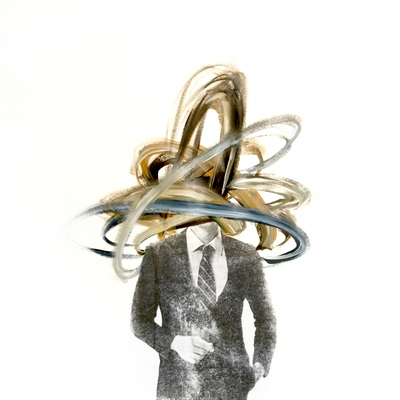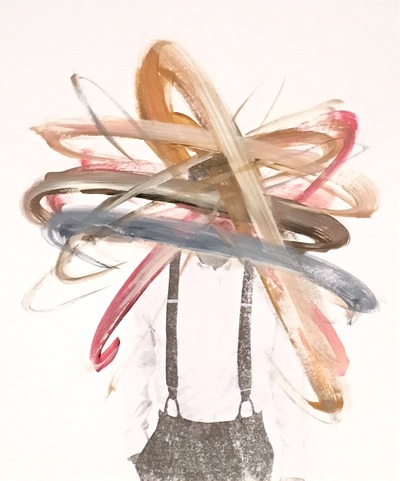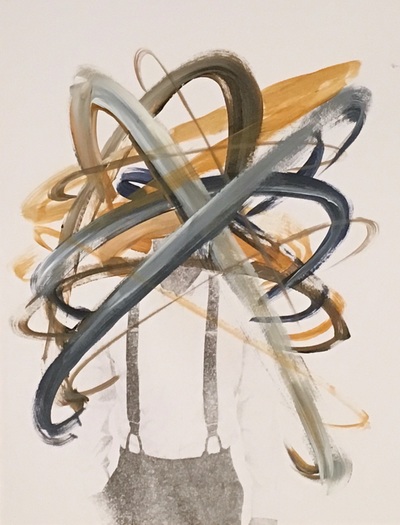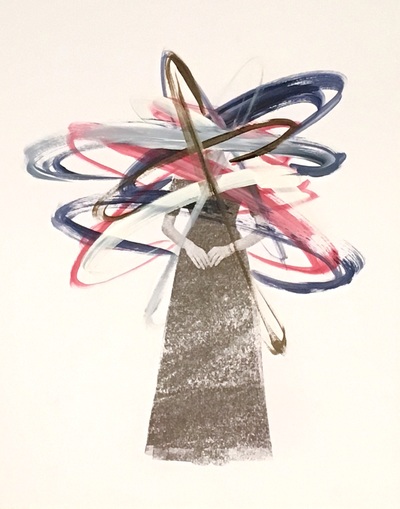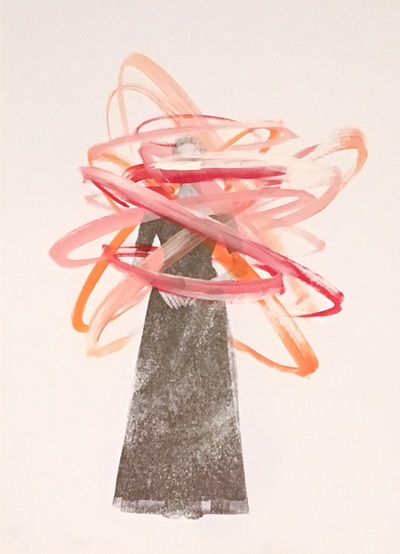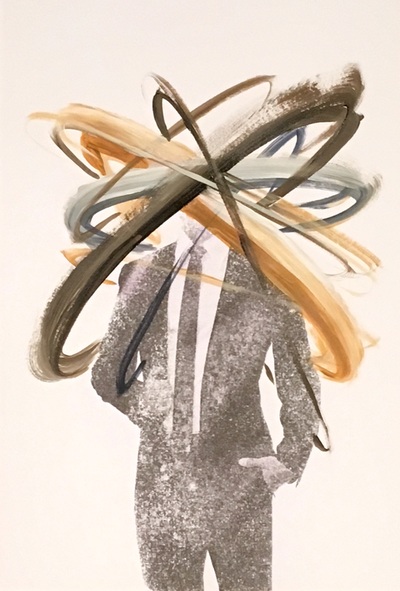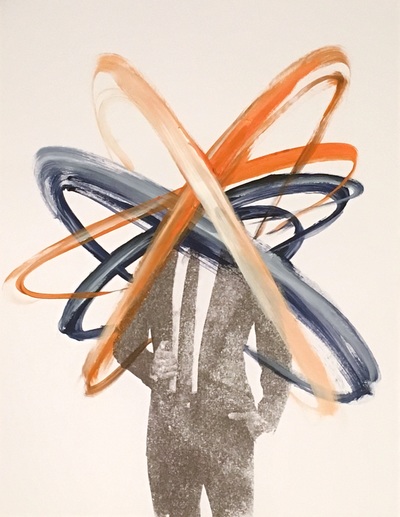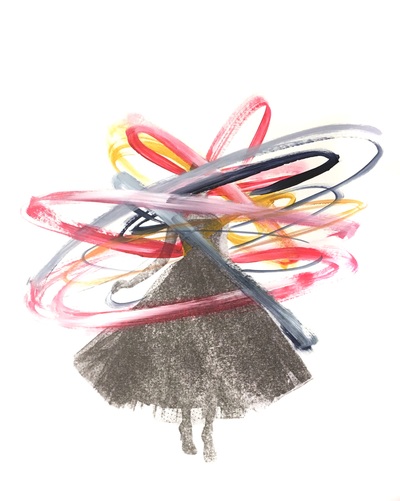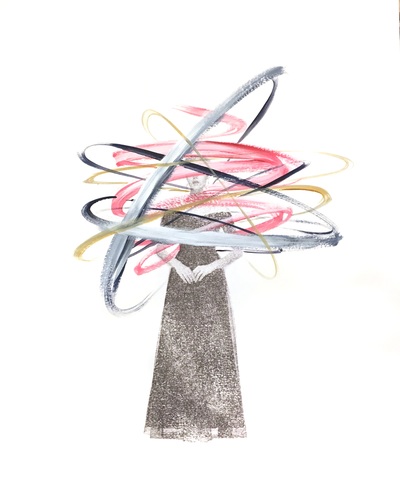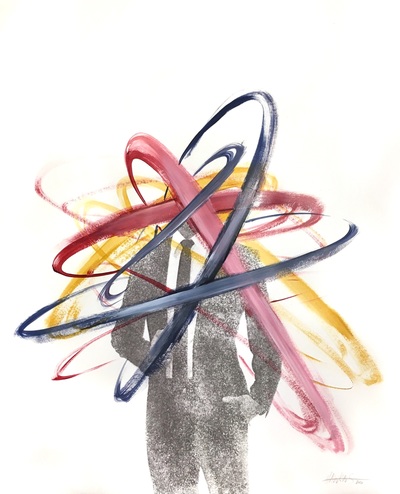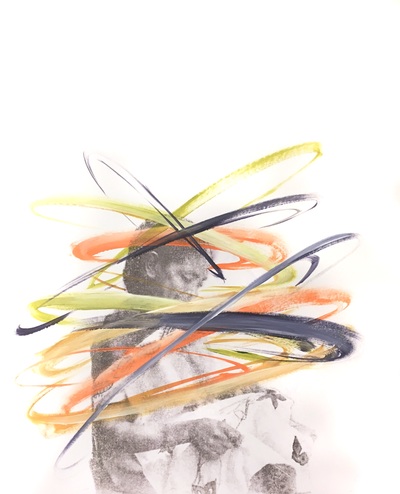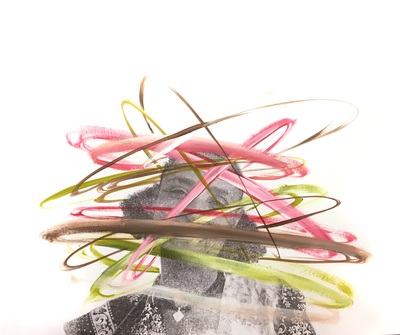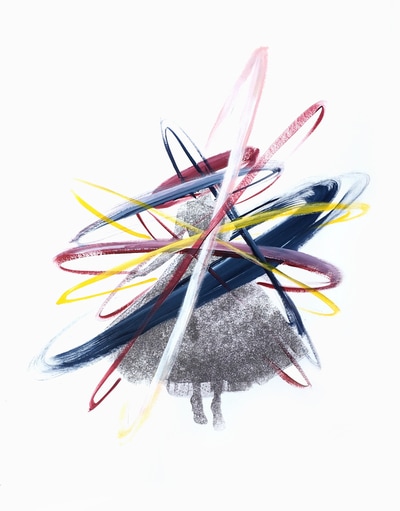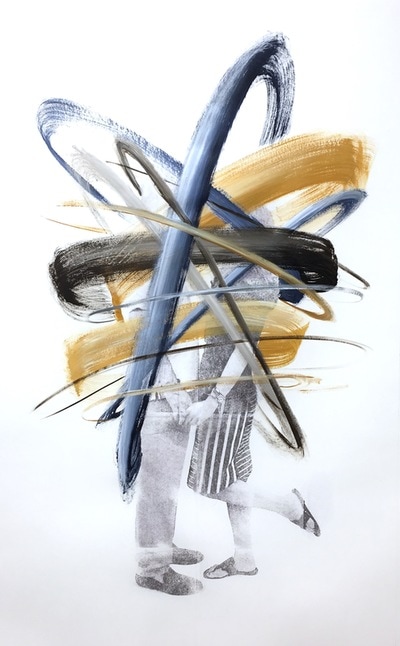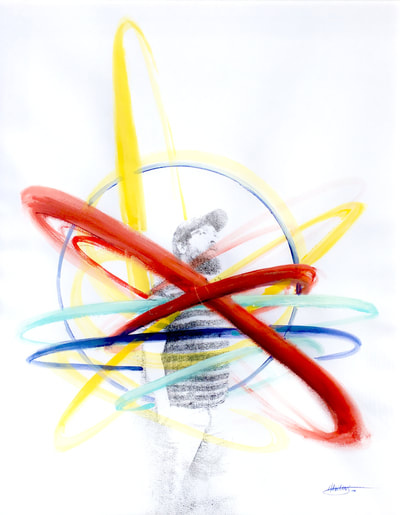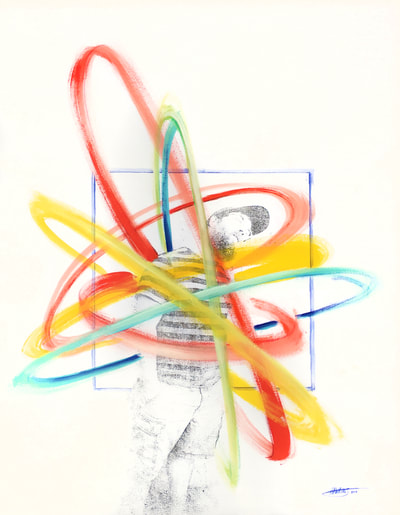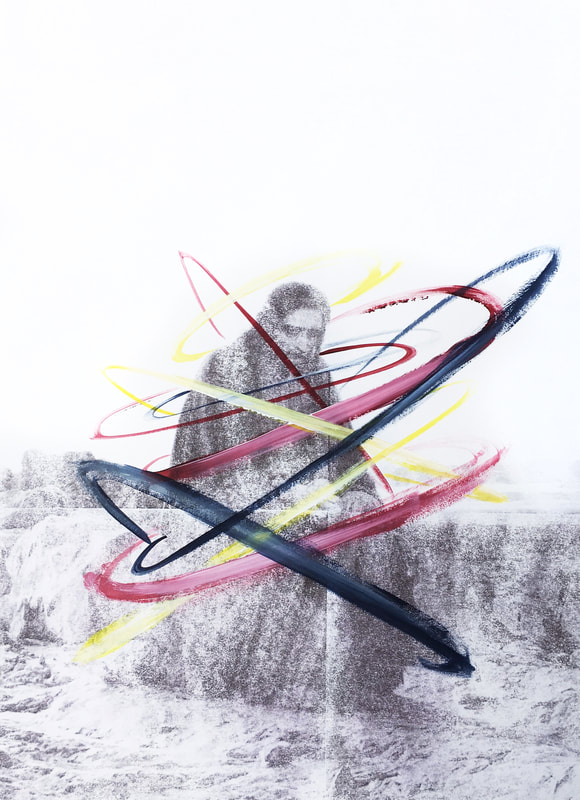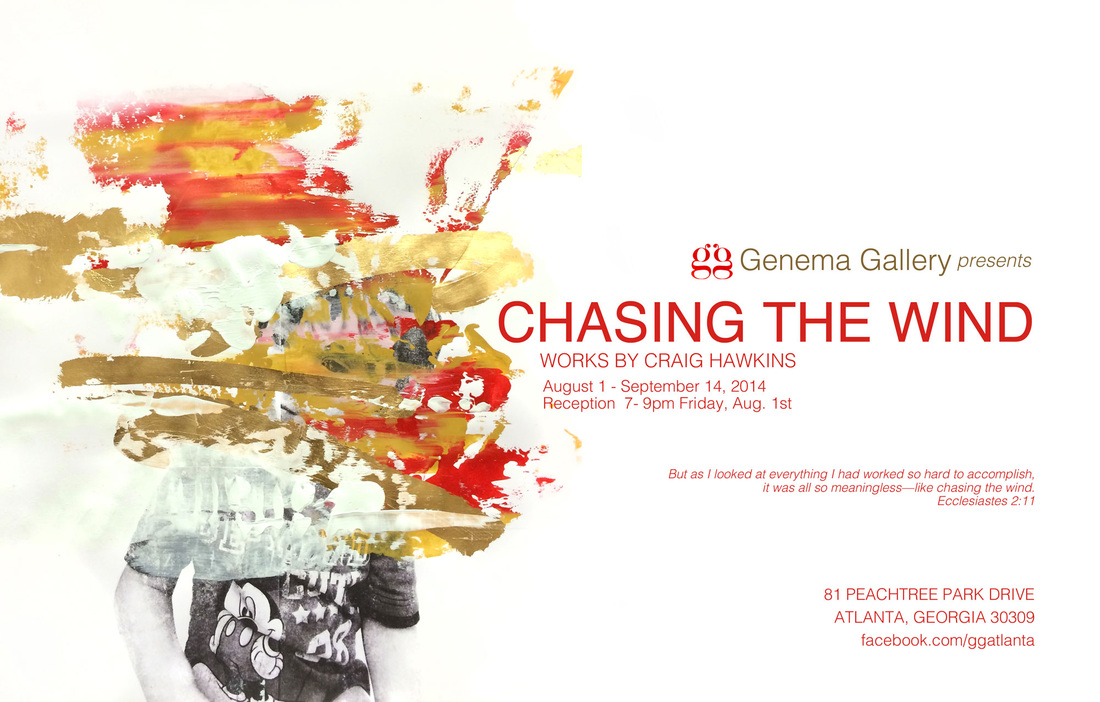superventions
|
Supervene is defined as: To come or occur as something extraneous, additional, or unexpected. These superventions are the extras or distractions of life, even false responsibilities that steal our time away from what's important. They represent a swirling demand of "chasing the wind" that we have to emerge from to see reality and experience truth. In the book of Ecclesiastes there's a common phrase referring to meaninglessness, "But as I looked at everything I had worked so hard to accomplish, it was all so meaningless--like chasing the wind. There was nothing really worthwhile anywhere." Ecclesiastes 2:11
This series depicts figures veiled by visual manifestations of thoughts or seemingly important responsibilities. The manifestations represent anything without eternal significance that gets in the way of our ability to see reality, to see and to set priorities in an appropriate hierarchy. These are supervening thoughts, questions, worries, concerns, anxieties, pleasures, distractions, and rabbit trails we consume on an hourly basis. In contrast, these aren't little victories of thought that amount to creative distractions leading to greater problem-solving abilities. No, these are the things that make you forget what's important, and shirk responsibility. These are things that will lead to breaking vows, and forgetting commitments. They seem to exist as, or create, a slightly different reality. They veil truth, prohibit growth, and they may even cause an atrophy of critical thought. Like a cultural fog that numbs reality they cause a hypersensitivity to anything that immediately tickles a carnal desire. These things produce an allergic reaction to progress or even feed off of procrastination. They displace truth with a lie. The attention they draw drains life and consumes time. It steals attention, kills valuable relationships, and destroys progress. Behind this veil we tend to acquire a false sense of busyness, importance, or purpose. |
So how do we fight? In a cumulative fashion, all this "chasing the wind" can produce harmful and relentless cycles of thought, but the book of Isaiah tells us in chapter 55 that God's thoughts are not our thoughts and his ways are not our ways. We need to familiarize ourselves with God's ways that are found in His word because it is a "lamp unto our feet and a light unto our path" Psalm 119:105. How do we break through these extraneous false belief systems? These things attack us from the outside yet work their way in becoming a nucleus of thought. The book of Romans tells us, "Do not be conformed to this age, but be transformed by the renewing of your mind, so that you may discern what is the good, pleasing, and perfect will of God" Romans 12:2. Again, studying God's word is key. If it doesn't consist of loving God and loving our neighbor as ourselves it may not be necessary. See Matthew 22:36-40. Where's the hope? Our hope comes from what God does when we spend our time purposefully doing and thinking about Him and His love for us. We break through these Superventions by giving our time to God. We meditate on His word, dialogue with Him, walk according to the guidance of the Holy Spirit, and worship Him regularly. Let's "Give all [our] worries and cares to God for he cares about what happens to [us]." 1Peter 5:7 and only do what we see the father do --Jesus is our example in this. Ex. John 5:19 Over all, the book of Mathew, chapter 6, verse 33, tells us to, "seek first the kingdom of God and His righteousness, and all these things will be provided for you." These "things" being the daily needs and provisions for life.
As a group may these pieces set themselves up as reminders. Reminders to stay vigilant, stay the course, and finish the race. Reminders that we are all one selfish, prideful, or poor choice away from trading real meaningful moments of life for temporary pleasure. We can relate with the feelings these pieces connote. We've all felt this way at one point. The devil comes to steal kill and destroy but Jesus brings life abundant. See John 10:10. These things aren't the end. They are symptoms of a greater need. So don't treat them like anything more than warnings signs of cupidity and displaced identity.
| ||
|
“When the Devil left Him”
acrylic and toner on paper 15 x 18.75 inches 2016 ARTIST THOUGHTS
The temptation of Christ in the wilderness described in the Gospel of Luke, chapter 14; the Gospel of Matthew, chapter 4; and the Gospel of Mark, chapter 1, inspire this piece. It’s is a variant from a series titled, “Superventions[1]”. Alone or as a group these pieces are intended to set themselves up as reminders. Reminders to stay vigilant, stay the course, and finish the race. They are reminders that we are all one selfish, prideful, or poor choice away from trading real meaningful moments of life for temporary pleasure. We can relate with the feelings these pieces connote. We've all felt this way at one point. The Devil comes to steal, kill, and destroy but Jesus, the only one to never succumb to temptation, brings life abundant[2]. These things aren't the end. They are symptoms of a greater need. So don't treat them like anything more than warnings signs of cupidity and displaced identity. [1] To read more about my Superventions series visit: www.craighawkinsart.com/superventions [2] See the Gospel of John 10:10 and the Book of Hebrews 4:15 |


